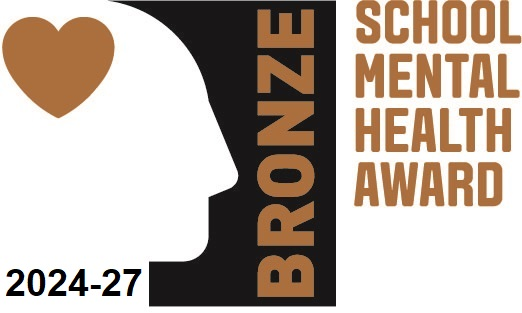PSYCHOLOGY
Please click on the links below:
Psychology Recommended Reading
What is Psychology about?
Psychology is a scientific study of the brain, mind and behaviour. It focuses on what people feel, think and perceive, as well as why they behave the way they do. Psychology as a science is directly relevant to our daily life. Studying A-level Psychology will help students learn how to complete their work independently and carry out research investigations. It also develops critical thinking skills, scientific mind-set, curiosity and creativity.
What do we teach in Psychology and why?
A-level students learn, practice and master knowledge, skills and research procedures in 11 key modules as outlined by AQA examination board. Mastering theoretical approaches and research procedures allow students to develop scientific mind-set and enquiry-based behaviour. This provides foundations for application of knowledge to real-world scenarios as well as awareness of how to maintain and improve physical and psychological well-being of oneself and people around us.
Core knowledge enables students to access topics in modules, application section deepens their understanding and evaluation section challenges students to analyse and exercise higher order reasoning.
Curriculum is embedded in standard scientific investigation framework which allow students to revisit previous topics on a regular basis. Long-term and medium-term teaching plans of all teachers are synchronised and sequential, allowing students orderly and structured curricular experience.
Each module is divided into several sections, based on main theoretical approaches, research investigations and real-world application, followed by consolidation through deepening and mastering, as well as thorough assessment, reflection and improvement cycles. Content is reinforced through carefully planned rehearsal, retrieval and home learning that have been designed to accommodate needs of individual students, groups of students, as well as provide stretch-and-challenge activities.
| Paper 1 modules | Paper 2 modules | Paper 3 modules |
|
1. Social Influence 2. Memory 3. Attachment 4. Psychopathology |
5. Approaches in Psychology 6. Research Methods 7. Biopsychology
|
8. Issues and Debates 9. Relationships 10. Addictions 11. Stress |
Social Sciences department thrives on developing next generation of academically capable and responsible citizens. In turn, A-level students are prepared for functioning in modern British society by being equipped with knowledge, tools and experience from psychological curriculum.
What does the Psychology enable our students to do?
Psychology curriculum aims to develop a wide range of academic, behavioural and practical skills:
- demonstrate knowledge and understanding of psychological concepts, theories, studies and research methods
- apply psychological knowledge and understanding of content in a range of contexts and scenarios
- develop timed writing, effective note-taking, use layered writing scaffolding and Tier 2 and Tier 3 vocabularies
- analyse, interpret and evaluate psychological concepts, theories, research studies, methods and ethical issues
- develop practical research skills and range of mathematical skills, including the use of inferential statistics
- use model answers effectively and enhance coping with stress and timed writing in extended assessment
- develop independent study, revision and exam skills
- retrieve content, reflect on and improve performance
- outline and evaluate therapies and treatments including their appropriateness and effectiveness
- use multiple opening phrases, diverse connectives and scientific jargon
- use mark scheme effectively and apply it to assess extended writing answers
- enhance cultural capital through access to modern debates, scientific discoveries and power of knowledge
- design own research, conduct investigation, analyse and interpret data, manage associated risks and use
- information and communication technology (ICT) to convey results
- compare main psychological approaches and assess their relation to methodology, human development, issues & debates and explanation and treatment of abnormality
How is the curriculum structured in Psychology?
Our curriculum in Key Stage 5 relies on prior knowledge, skills and behaviours students develop during earlier stages of education, especially in English, Maths and Science, which create basis for A-level Psychology curriculum. In Key Stage 5 we cover 5 lessons each week, with each class being allocated 2 teachers who specialise in their modules and topics. Students benefit from having different teachers with diverse style of teaching and interaction.
What specifications do we use?
A-LEVEL: AQA(7182)
What are the links between Psychology and other subjects?
Due to scientific nature of the course, we recommend that students have a reasonable grasp of Maths, English and Science. Psychology blends in well with most other A-level subjects including English and Maths, natural sciences Biology and Chemistry, as well as other social sciences, Sociology, History and Politics. Finally, exploring human perception and expressive behaviour taps into creativity and Psychology links well with Arts.
What are the future careers students can take when they study Psychology?
Psychology provides useful foundation for diverse employment pathways, however it is particularly valuable for those students considering a career in: education, teaching, research, philosophy of science, evolutionary research, neuropsychology, tests and assessments, cognitive neuroscience, criminology, psychiatry (medicine), elderly care, sport management, workplace productivity, ergonomics, counselling and psychotherapy, social work, human resource management, consumer research, advertising and more.
What extra-curricular activities can students take part when you study Psychology?
Our students are offered a variety of extra-curricular opportunities, which consist of visits numerous establishments, such as Science Museum, Freud’s House, NHS hospital, Natural History Museum, Wellcome Collection Trust, UCL Galleries, Imperial War Museum, Bethlem Museum and London Museum. In addition, we host guest lecturers who provide our students insights into modern academic trends and research in psychology and related career fields.








